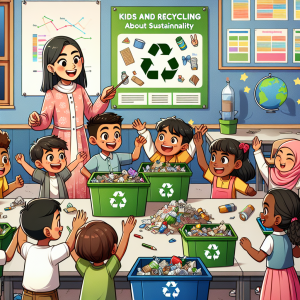Living Off the Grid: A Sustainable Lifestyle Choice
Living off the grid has surged in popularity as people seek sustainable lifestyles that reduce their carbon footprint and encourage self-reliance. This lifestyle revolves around the fundamental idea of living independently from public utility services, such as electricity, water, and sewage systems. With the growing concerns over climate change and the depletion of natural resources, off-grid living presents a viable and eco-friendly alternative for those looking to make a positive impact on the environment.
One of the core components of living off the grid is energy independence. Most off-grid homes rely on renewable energy sources such as solar, wind, and hydropower to meet their electricity needs. Solar panels are a popular choice due to their ability to harness abundant sunlight and convert it into usable electricity. These panels can be installed on rooftops or in open areas to maximize sun exposure. Wind turbines serve as another alternative, especially in areas with consistent wind patterns, generating power when solar energy might be less effective. Meanwhile, hydropower can be utilized by those living near flowing water sources, providing a steady and reliable energy supply.
Water self-sufficiency is another crucial aspect of the off-grid lifestyle. Off-grid dwellers often utilize rainwater harvesting systems that collect and store rainwater for domestic use. This method is both sustainable and cost-effective, reducing reliance on municipal water supplies and, consequently, the strain on natural water resources. To ensure water quality, harvested rainwater must be adequately filtered and purified. Some off-grid homes may also have their own wells, accessing groundwater supplies to meet their needs.
Waste management in off-grid living requires innovative solutions to deal with sewage and refuse sustainably. Composting toilets are a favored option, converting human waste into compost that can be safely used to enrich soil. These toilets significantly reduce water usage compared to traditional flush systems and eliminate the need for septic systems. For other household waste, the principles of reduce, reuse, and recycle become essential. Many off-grid communities focus on minimizing waste generation and reusing materials, while organic waste can be composted to create nutrient-rich soil for gardening.
Sustainable food production is a critical component of living off the grid. Growing one’s own produce reduces the carbon footprint associated with transporting food over long distances and ensures access to fresh, organic produce. Off-grid residents often adopt permaculture principles, a sustainable agricultural system emphasizing natural ecosystems’ diversity, resilience, and productivity. This approach involves companion planting, utilizing natural resources effectively, and integrating animals into the farming system to enhance soil fertility. Additionally, preserving food through canning, drying, and fermenting extends the availability of homegrown produce throughout the year.
The off-grid lifestyle is not only environmentally sustainable but also financially advantageous in the long run. Although the initial setup costs for renewable energy systems, water collection methods, and sustainable building materials can be high, the investment typically pays off over time. Reduced or eliminated utility bills can lead to substantial savings, while homegrown food cuts grocery expenses. Additionally, off-grid living often fosters a mindset of resourcefulness and frugality, encouraging individuals to make conscious decisions that prevent unnecessary spending.
Building an off-grid home often involves choosing sustainable materials that minimize environmental impact while enhancing energy efficiency. Many off-grid homes utilize reclaimed wood, recycled materials, and locally sourced products, reducing the carbon footprint associated with production and transportation. Additionally, incorporating passive solar design principles can maximize natural light and heat during colder months, further decreasing reliance on artificial heating systems. The use of non-toxic paints and finishes ensures good indoor air quality, promoting a healthier living environment.
Technology plays a significant role in facilitating off-grid lifestyles today. Advancements in renewable energy technologies, such as improved battery storage systems, enhance the efficiency and reliability of off-grid power setups. Smart home systems allow residents to monitor and control energy usage remotely, optimizing consumption and further reducing waste. Online communities and resources provide a wealth of knowledge and support, helping individuals navigate the challenges of off-grid living and stay informed about the latest developments in sustainable living practices.
Community is another vital aspect of the off-grid lifestyle. Many individuals or families choose to live in off-grid communities where resources and knowledge are shared. These communities often emphasize cooperation and mutual aid, fostering a sense of belonging and collective responsibility. By pooling resources, such as tools and educational materials, members can reduce individual expenses and enhance their self-sufficiency. Additionally, being part of a supportive community can alleviate some challenges associated with off-grid living, such as isolation and the steep learning curve for beginners.
Despite the many benefits, living off the grid is not without challenges. It requires a significant lifestyle adjustment and may involve more labor-intensive tasks, such as maintaining energy systems and managing waste. Weather variations can impact renewable energy production, necessitating efficient storage solutions and backup plans. Additionally, zoning laws and regulations can pose obstacles for those looking to build off-grid homes, requiring thorough research and planning to ensure compliance.
Living off the grid represents a profound commitment to sustainability, self-reliance, and resilience. By embracing renewable energy sources, sustainable food practices, and innovative technologies, individuals can significantly reduce their environmental impact while enjoying the benefits of a simpler, more intentional lifestyle.




